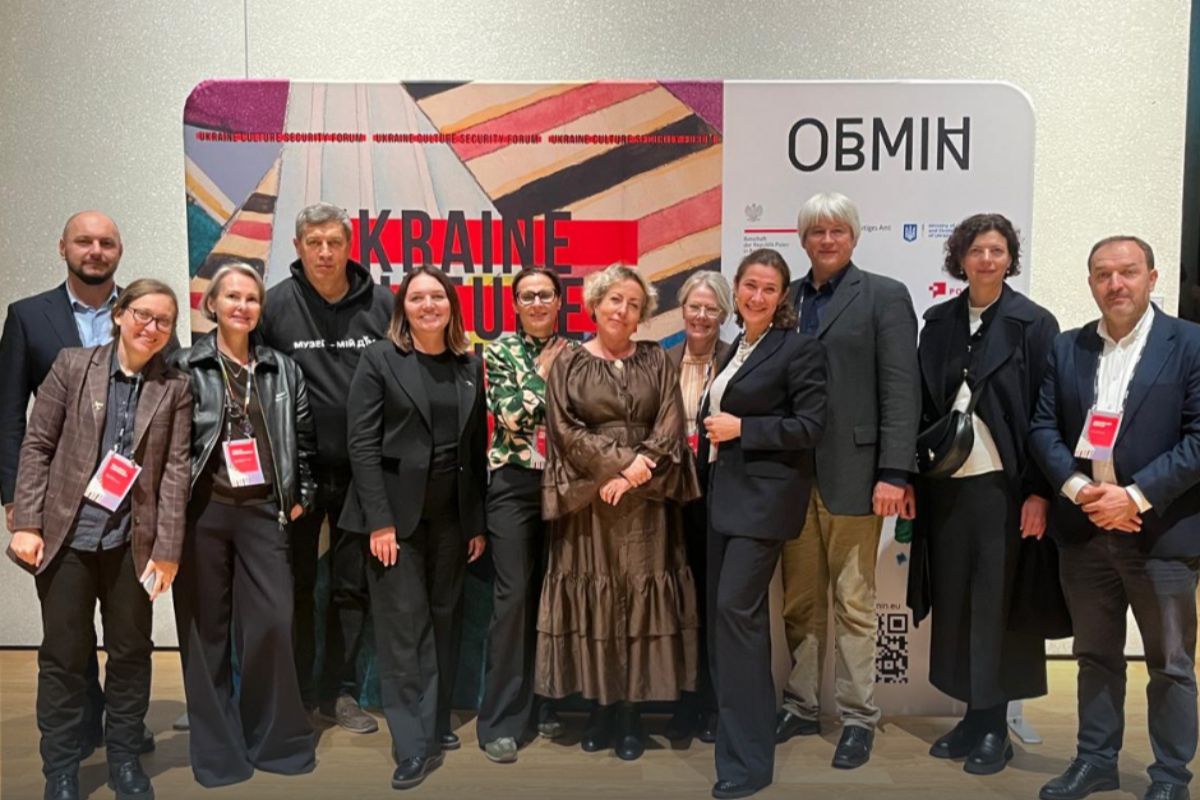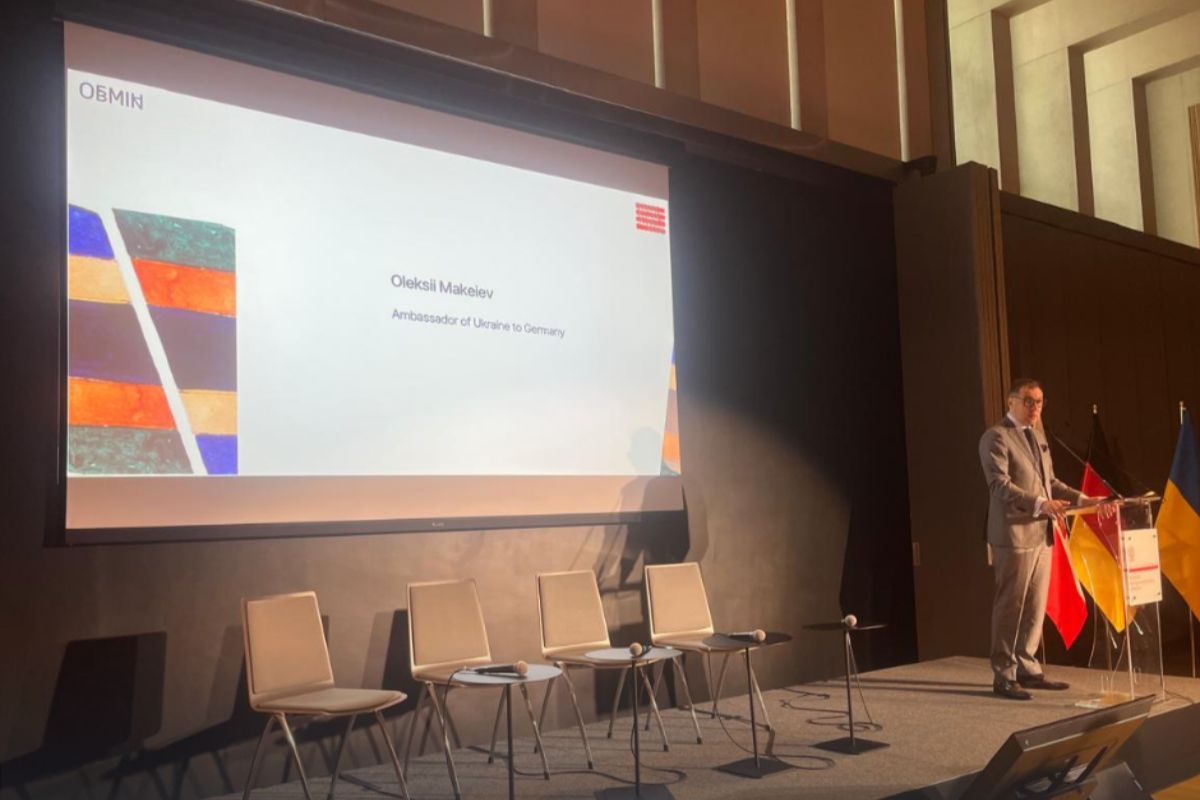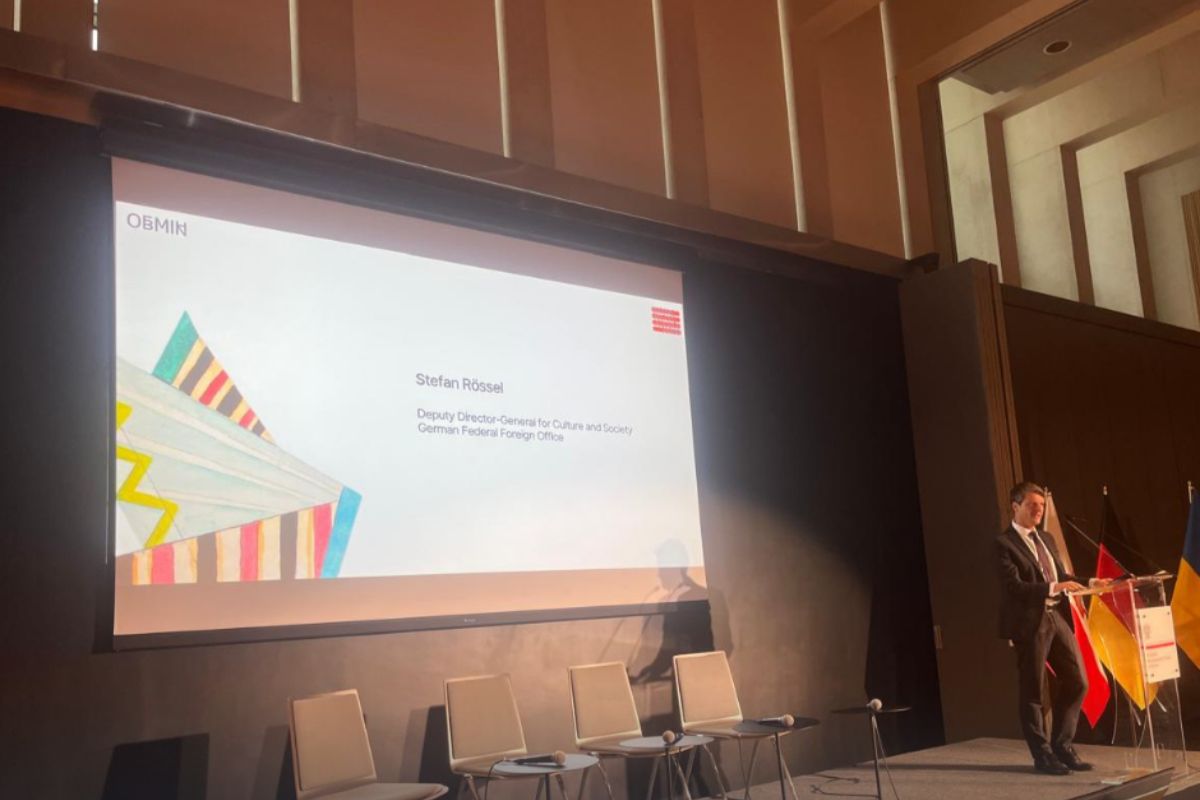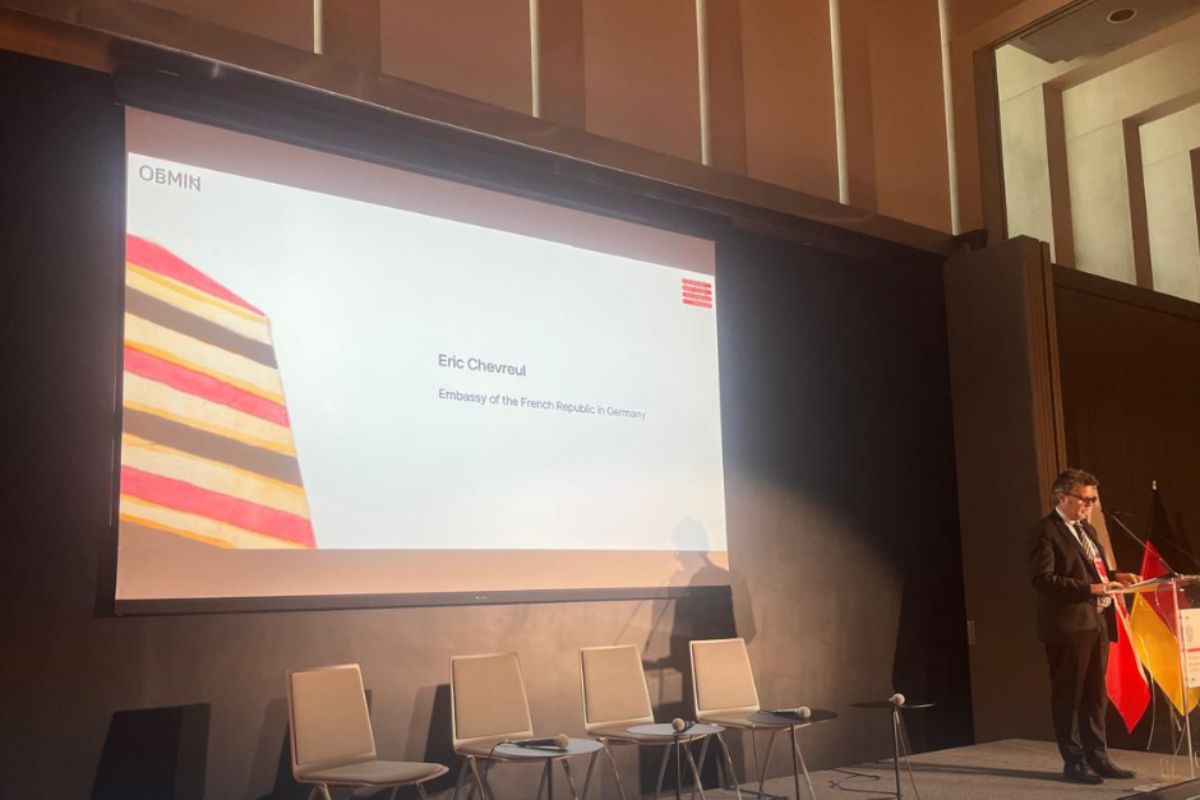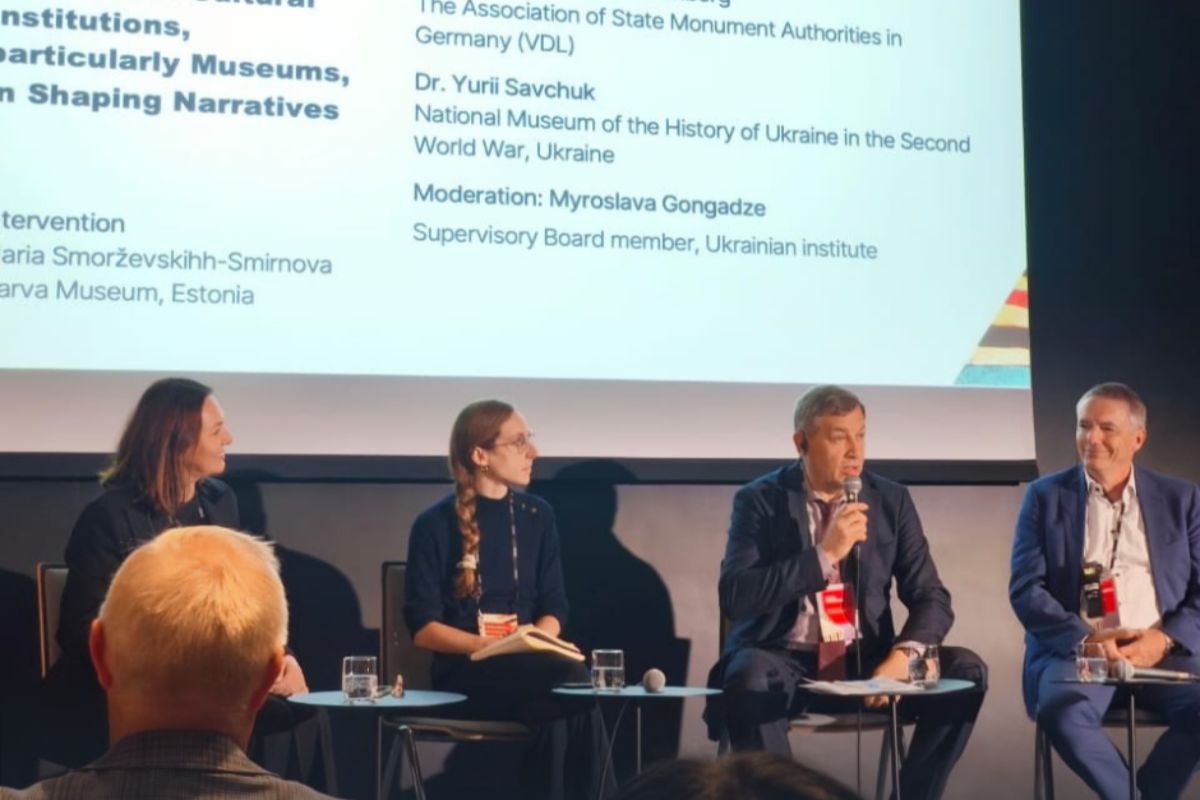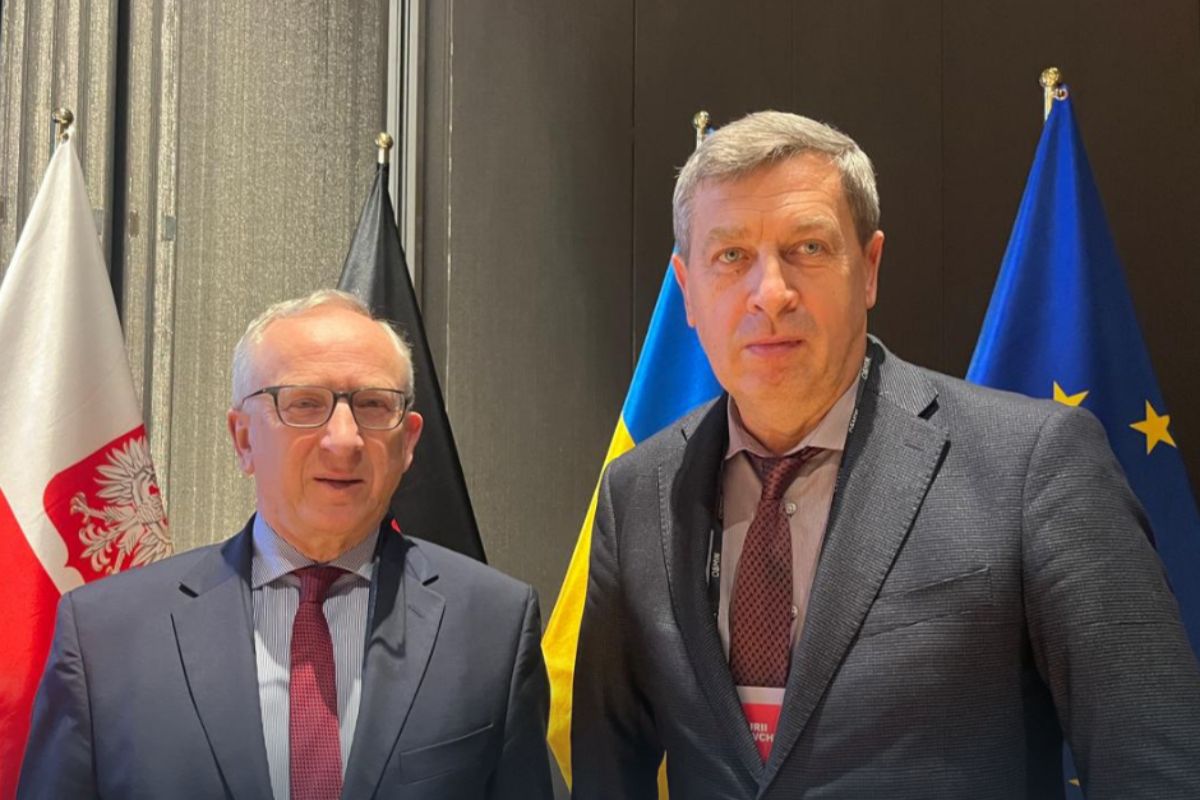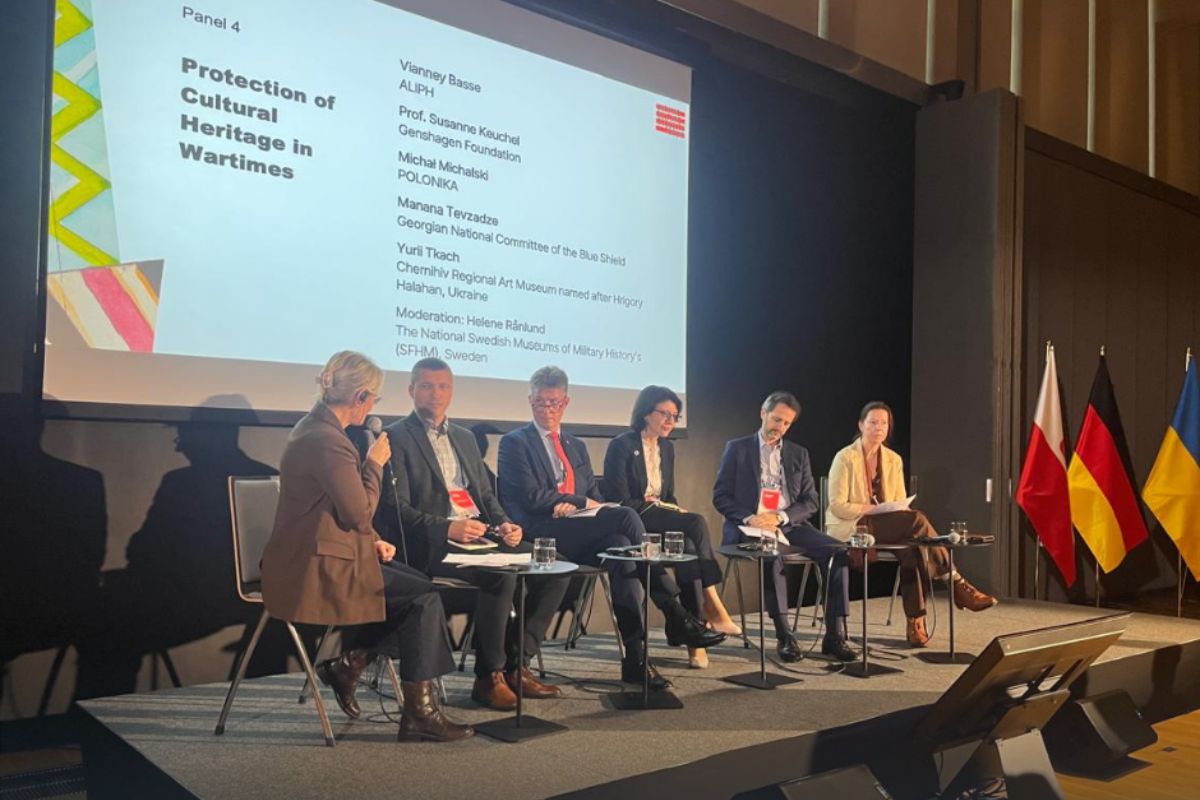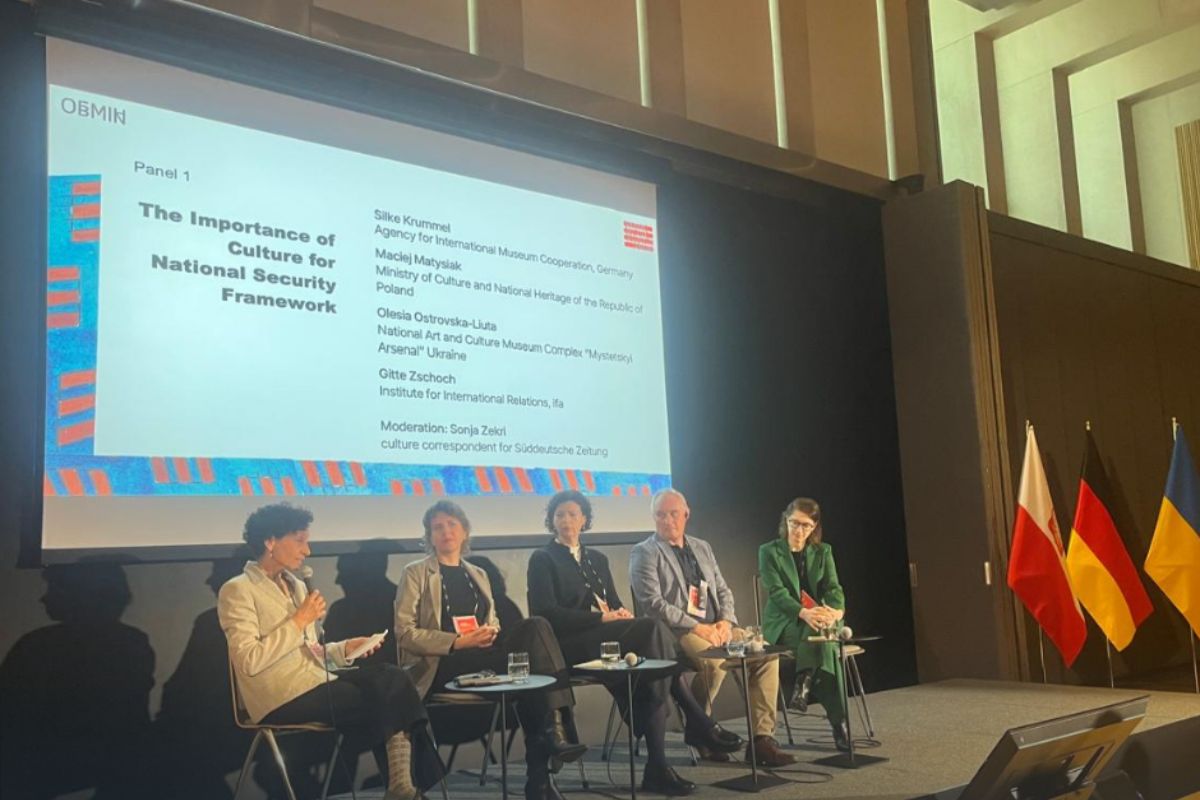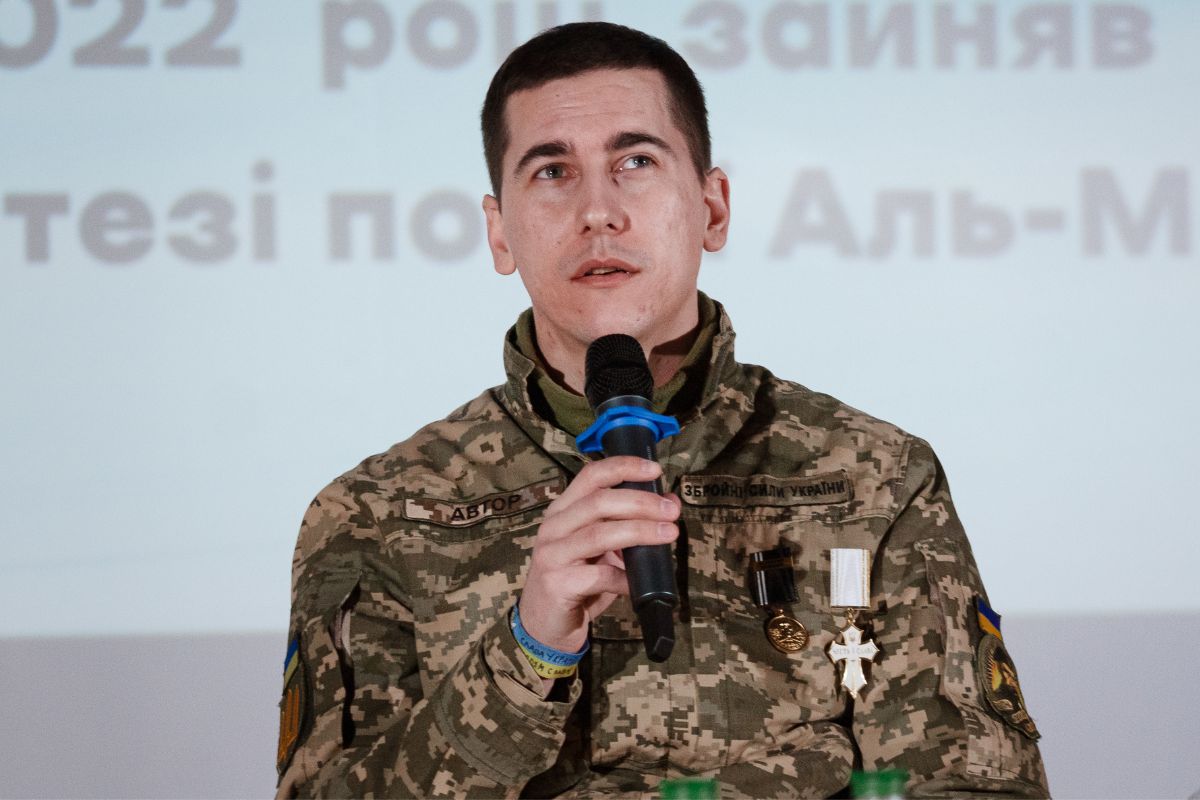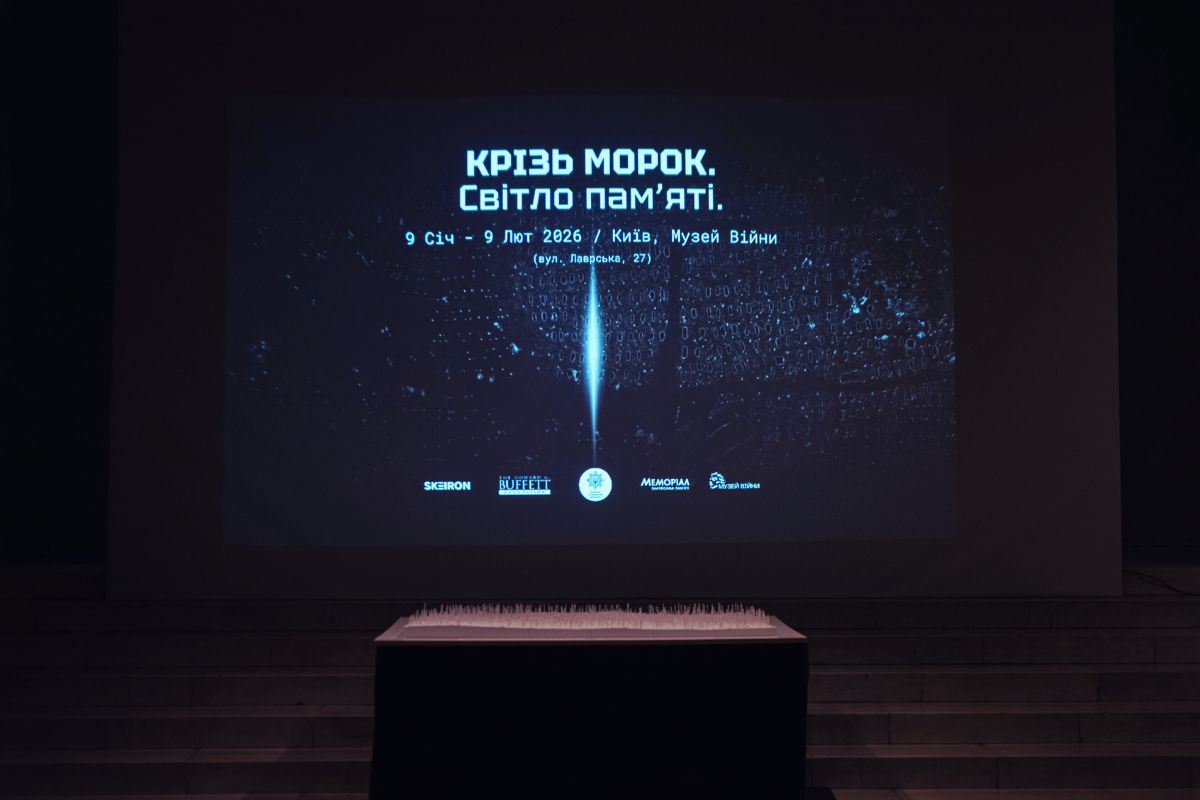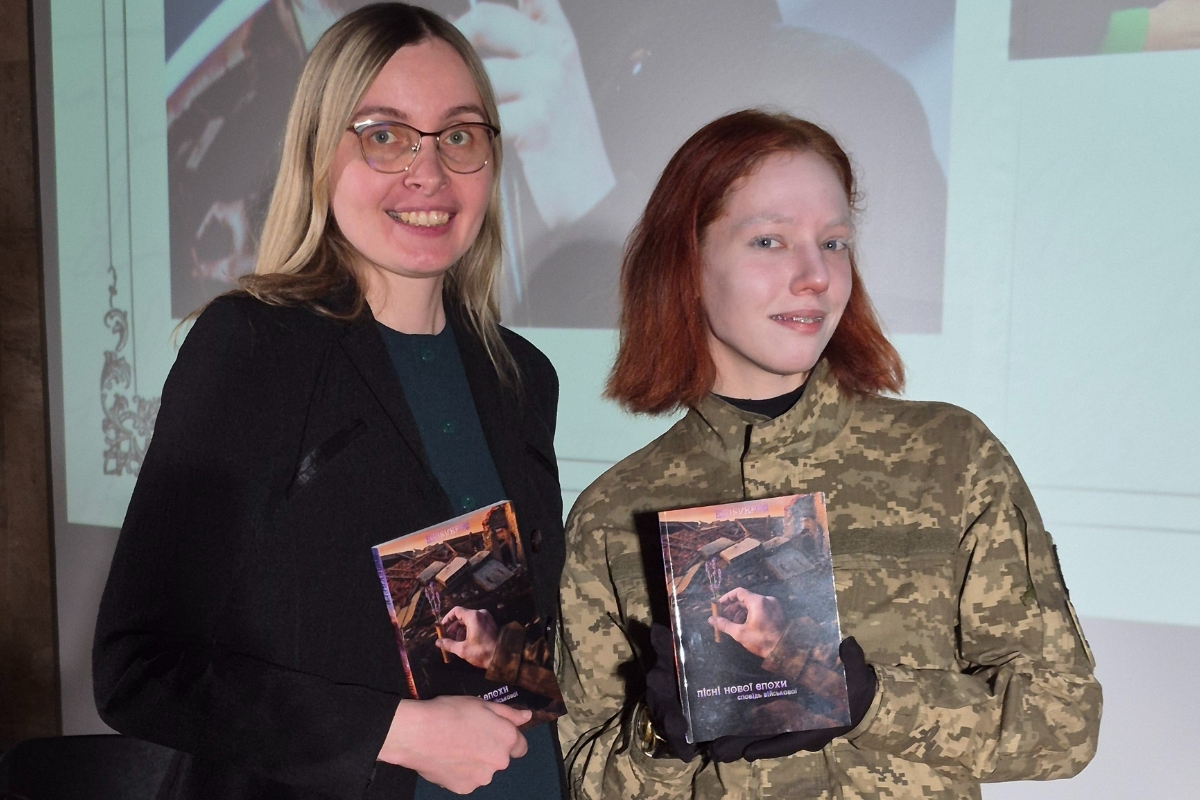The second day of the Ukraine Culture Security Forum is underway in the German capital, Berlin. This international event was organized by the “OBMIN” Foundation with the support of more than 20 partners from governmental institutions, diplomatic missions, and non-governmental organizations from Germany, France, Poland, and Ukraine. The Forum has brought together government officials, diplomats, cultural figures, journalists, and opinion leaders to discuss the preservation of Ukraine’s cultural heritage during russia’s ongoing aggression, countering the threats it creates, and the acquisition of new functions by the cultural sphere as a component of national security.
Today’s session was kindly hosted by the Embassy of Poland in Germany. The participants were greeted by the Founder of the “OBMIN” Foundation, Małgorzata Lawrowska von Thadden, and the Head of the Representative Office of the Ukrainian Institute in Germany, Kateryna Rietz-Rakul. It is symbolic that the opening of the session was accompanied by speeches from diplomats of the countries that demonstrate leadership in international cooperation to protect Ukraine’s cultural heritage. Specifically, the attendees were addressed by the Chargé d’Affaires of the Republic of Poland to the Federal Republic of Germany, Jan Tombiński, the Ambassador Extraordinary and Plenipotentiary of Ukraine to Germany, Oleksii Makeiev, the Counselor for Cooperation and Cultural Affairs at the French Embassy in Germany, Eric Chevreul, and the Deputy Director-General for Culture and Society at the German Federal Foreign Office, Stefan Rössel.
The Director General of the War Museum, Yurii Savchuk, took part in a panel discussion on the role of culture in hybrid warfare and the functions of museums in shaping new narratives. The event was moderated by journalist, public figure, and member of the Supervisory Board of the Ukrainian Institute, Myroslava Gongadze. The initial discussion was preceded by a report from the Director of the Narva Museum in Estonia, Maria Smorževskihh-Smirnova, who, working right on the border of European civilization and the russian federation, steadfastly defends democratic values despite pressure from the kremlin.
The panel discussion also featured representatives from countries that have undergone a complex path of rethinking and reinterpreting their historical past: Independent Researcher from the University of Toulouse, Dr. Sophie Chauvet, and representative of the Association of State Monument Authorities in Germany, Professor Thomas Drachenberg.
The head of the War Museum spoke about the profound transformations the institution is undergoing during the full-scale war. The russian invasion has not only presented the Museum with previously unknown challenges but has also prompted it to begin active, real-time documentation of the war. Collecting artifacts and evidence of the ongoing war has allowed the Museum to tell the truth about the criminal russian aggression and the heroic struggle of the Ukrainian people in the global information space by presenting exhibition projects. Yurii Savchuk noted the particular importance of the Museum’s international activity in the context of countering russian disinformation narratives aimed at undermining the solidarity of the democratic world and its support for Ukraine.
The Museum sincerely thanks the “OBMIN” Foundation and personally its Head, Małgorzata Lawrowska von Thadden, for the attention paid to the activities of our institution and for yet another opportunity provided to join the discussion of problematic issues facing the Ukrainian cultural sector at a European diplomatic level.
